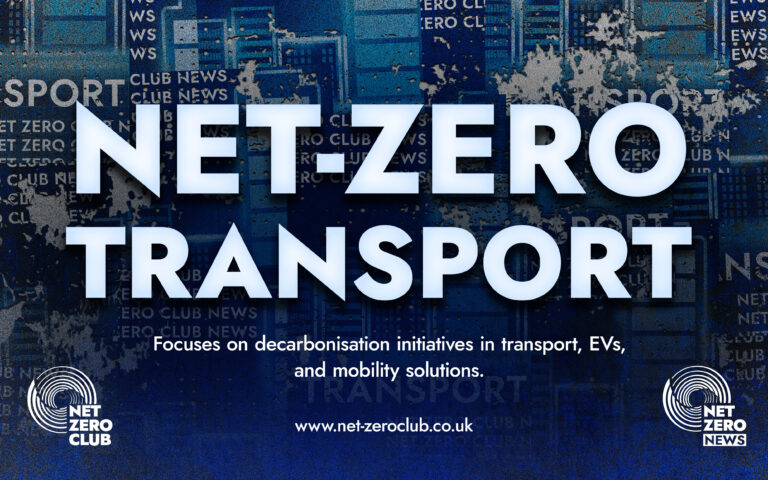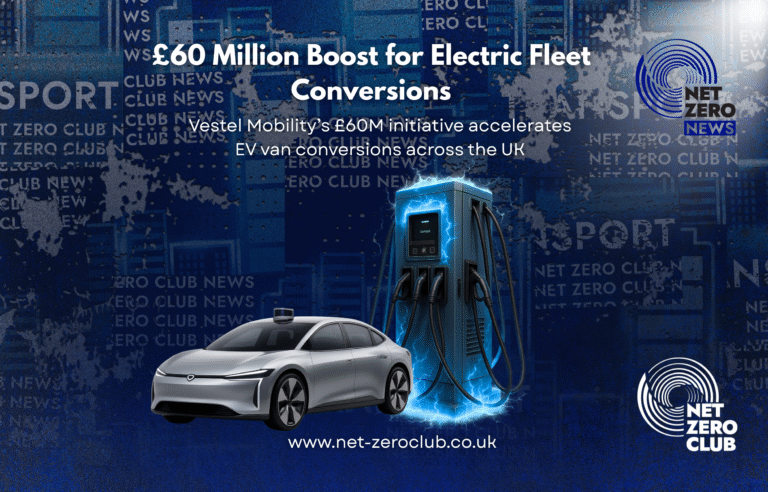Survey Warns EV Charging Divide Threatens Net Zero Transition

Welcome to Net Zero News, where we bring you the latest developments driving the UK’s transition to a net-zero future. Today we examine a new survey from the Electric Vehicle Association (EVA) England revealing a widening “charging divide” that could threaten a fair shift to electric vehicles across the country.
Net Zero News can reveal that EVA England’s report, published this week, surveyed more than 2,000 UK drivers and found stark differences between those able to charge at home and those reliant on public infrastructure. The survey highlights growing frustration among renters, flat-dwellers and urban residents who lack off-street parking or home chargers, raising concerns over equitable access to EVs.
In a significant step towards the UK’s net-zero goals, EVA England outlines how home charging availability directly correlates with EV adoption rates, with 78% of homeowners having installed home chargers compared to just 28% of those without private driveways. The report warns that without urgent action, large sections of the population will be excluded from the electric transition, putting both emissions targets and social equity at risk.
The findings are set against the backdrop of the UK’s commitment to ban new petrol and diesel car sales by 2030, part of the broader Transport Decarbonisation Plan. Net Zero News understands this forms part of a series of assessments aimed at ensuring the charging network keeps pace with projected EV uptake, which the government forecasts could exceed 11 million battery electric vehicles on UK roads by 2035.
The charging divide matters because it risks slowing the overall decline in tailpipe emissions. Drivers unable to charge conveniently may delay switching to electric, maintaining higher greenhouse gas output from internal combustion engines. EVA England estimates that, if left unaddressed, the divide could reduce the projected CO₂ savings from road transport by up to 15% by 2030.
Beyond environmental consequences, the report underlines socioeconomic inequities. Lower-income households and those in urban centres are least likely to have home charging, yet often rely on cars for commuting and essential travel. With the cost of living already under pressure, the lack of affordable public or on-street charging further undermines efforts to decarbonise transport in a just manner.
Addressing the divide will require concerted funding and delivery efforts. The UK government’s Office for Zero Emission Vehicles (OZEV) has committed £1 billion through the Local Electric Vehicle Infrastructure (LEVI) fund and other grant schemes to support on-street residential charging. Net Zero News can confirm that additional private sector partnerships are emerging, with energy firms and charging network operators piloting lamppost chargers and low-cost installations in five major cities.
Key delivery partners include local authorities in London, Manchester and Edinburgh, working alongside operators such as BP Pulse, Octopus Energy and ChargePoint. The government’s £400 million Rapid Charging Fund is also playing a role, underwriting the rollout of high-power chargers on motorways and strategic routes, which EVA England says is vital for inter-urban travel yet insufficient to tackle residential gaps.
This survey’s insights align with wider net-zero frameworks, including the 2021 Transport Decarbonisation Plan and the recent Charging Infrastructure Strategy, which set out a target of 300,000 public charging points by 2030. Net Zero News understands that the ongoing consultation on the ZEV mandate, requiring carmakers to sell increasing shares of zero-emission vehicles, is closely monitoring infrastructure equity as part of its final policy assessments.
Industry and community impact will be significant if the charging divide persists. Taxi drivers, delivery fleets and small businesses often operate without private parking, creating operational barriers and additional costs. Conversely, local residents face visual impacts from proposed pavement chargepoints and potential conflicts over kerbside allocation, necessitating sensitive planning and community engagement.
Despite challenges, innovations are emerging. Portable charger pods, community hubs in neighbourhood car parks and battery swap trials are under exploration to meet diverse needs. Net Zero News understands that feedback from EVA England’s members will directly inform OZEV’s upcoming strategy update, due early next year, to address technological and procedural hurdles.
Looking ahead, the next phase involves a government review of on-street charging provisions, due to conclude in spring 2025, followed by targeted funding announcements later in the year. Local authorities have been urged to submit data on residential parking patterns and demand forecasts by January, paving the way for more nuanced deployments.
—
Net Zero News is powered by the Net Zero Club.
Join the UK’s fastest-growing net-zero community.
Upcoming Events:
– Net Zero Scotland Projects Conference
– Net Zero Nations Projects Conference
Got a net-zero project to share? Email: lee@net-zero.scot

 Got net-zero news, project updates, or product launches to share?
Got net-zero news, project updates, or product launches to share? 

